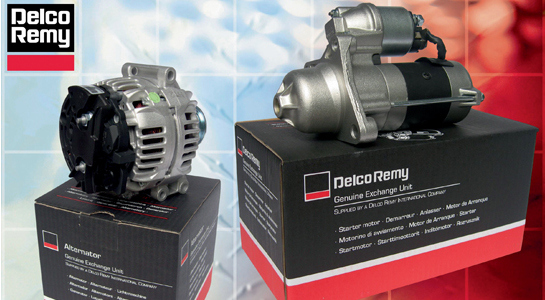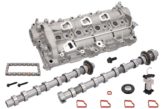
A recent analysis that Remy Automotive undertook of all the warranty returns from across the UK shows that well over 50% of the ‘failed’ units were either damaged by an external influence, or more commonly, that there was in fact nothing wrong with them.
I know that this takes some believing, but the facts do not lie. 33% of the alternators returned had no fault and, when placed by us under running test, proved to be fully functional and fully powered. Returned starter motors proved even worse, with an amazing 48% of those returned to us with no faults whatsoever!
This begs the question: “What is going wrong?”
Admittedly, occasional faults will occur within the unit, but at nothing like the scale that some installers actually believe. The end result of this is more dissatisfied customers than there should be, plus a loss of business at the garage due to a drop in customer confidence, resulting from the car returning three or four times with the same fault. Additionally, there is a lot of unnecessary work for the manufacturer, which will inevitably affect the cost of these units in the future.
So what can we do? Firstly, we need to ask a simple question: “It did work, it doesn’t now – so what has changed?”
Most failures do not just happen – only fair wear-and-tear caused by age can be the justification to simply replace the unit. Any other cause needs to be investigated before the new unit suffers exactly the same fate as the old one.
Let us look at two specifics and their solution:
Alternators
The Ford Focus Smart Charge System’s electrical system and output is controlled by the Power Control Module, not just the alternator. The common misdiagnosis is that the ignition warning lamp remains on, informing the driver that there is a charging fault. The technician will plug his computer into the PCM which will show that there is a generator/alternator fault. The technician will then change the alternator to find the same fault and the ignition warning lamp still on. There is a small connecting plug into the alternator.
One of the pins goes back into the PCM which controls the vehicle’s voltage. Because of the wiring being of such a fine gauge, it is prone to breakage. Also, the small connecting pins inside the plug are prone to corrosion. The installer must therefore check the wiring/plugs, before changing the alternator.

Starters
This is a common warranty return on any Vauxhall 1.0, 1.1 and 1.4 petrol starter. The ignition switch, which is connected to the key switch on the car, keeps the starter engaged, due to a sticking contact when the engine is running and the fault is nothing to do with the starter motor.
So how does the technician spot this problem? There will be discolouration of the armature shaft and/or drive pinion. The starter will smell burnt and there will be damage to the pinion teeth because the engine has spun the starter at excess of 25,000 RPM.
We supply a technical bulletin (which comes in the box) highlighting the issue to the technician before they replace the starter motor. The reason for this is that we want them to find the root cause of the problem before fitting a replacement starter.









